As artificial intelligence (AI) continues to permeate the modern workplace, its potential applications in hiring processes, employee monitoring, and facial recognition technology have generated mixed opinions among Americans. A recent Pew Research Center survey offers valuable insights into the perspectives of the U.S. population on AI and its potential impact on the workforce.
This blog post offers a comprehensive summary of this survey and in-depth analysis of the diverse opinions on AI’s role in the workplace, considering various demographic factors and focusing on both the opportunities and challenges that AI presents.
AI in Hiring: A Closer Look at the Data
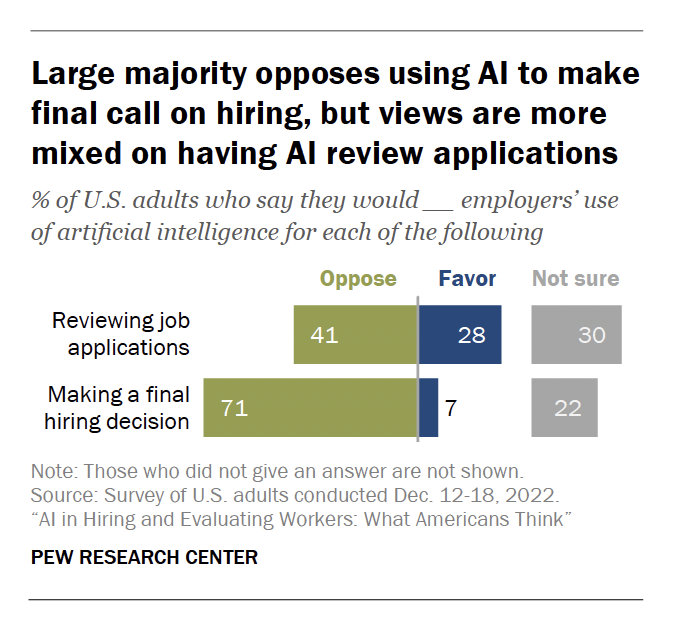
A Pew Research Center survey reveals mixed opinions among Americans regarding the use of AI in workplaces. Although 62% believe AI will have a major impact on workers in general in the next 20 years, only 28% think it will significantly affect them personally. The majority of respondents oppose using AI for final hiring decisions (71%), firing decisions, and employee monitoring.
However, 47% believe AI could be better than humans at evaluating job applicants fairly, and some see potential in reducing racial and ethnic bias in performance evaluations. Overall, more Americans believe AI will hurt workers than help them, and opinions on AI’s long-term impact on the economy are divided.
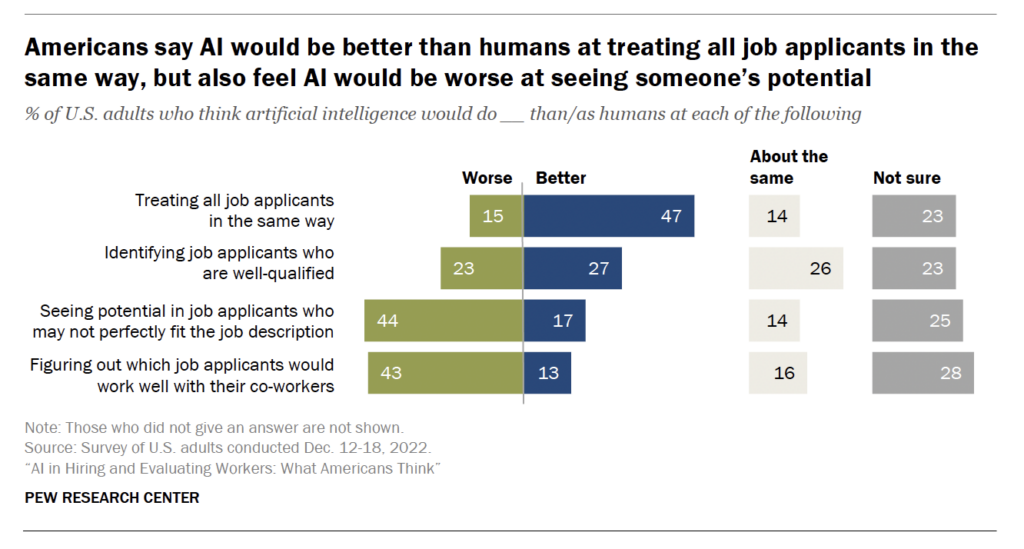
This reluctance stems from concerns about losing the personal touch in hiring and the possibility of biases in AI systems. A deeper analysis of the data reveals that:
- 66% of respondents would not want to apply for a job with an employer that uses AI in hiring decisions
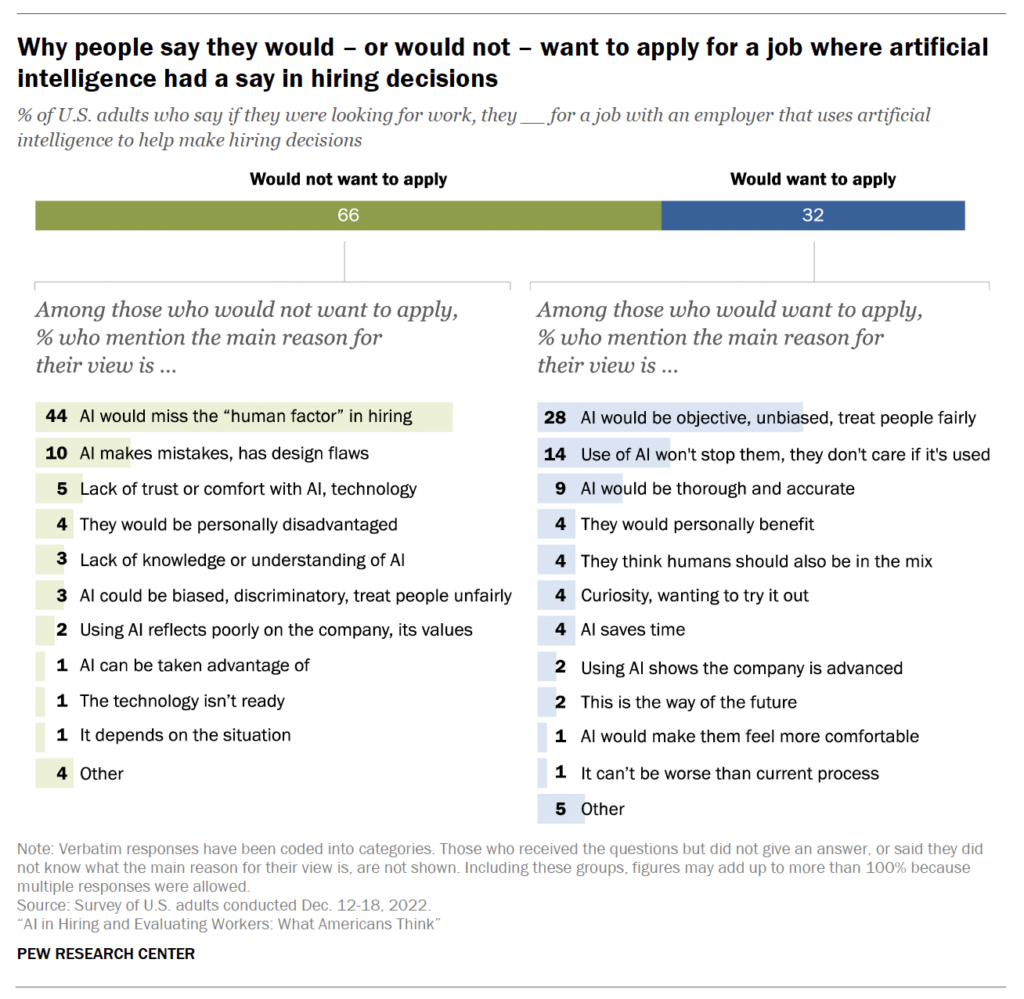
- 64% of Black adults consider bias and unfair treatment based on race or ethnicity a major issue, with 47% of Black adults who think this is a problem being optimistic about the impact of AI’s increasing use
- 53% of those who believe bias and unfair treatment based on race or ethnicity is a problem in hiring say the problem would definitely or probably get better with increased use of AI in hiring
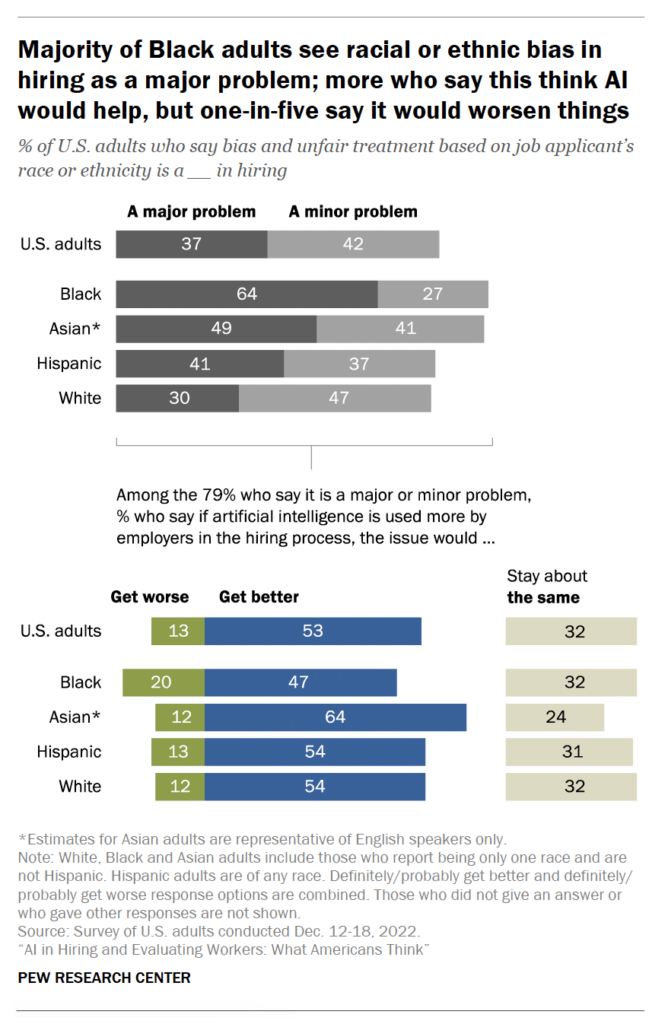
AI Monitoring and Surveillance: Analyzing Public Concerns
The majority of Americans oppose employers using AI to track workers’ movements, monitor their time at their desks, and record their computer activities. Views on AI evaluation of job performance are mixed, with 39% opposing, 31% supporting, and 29% unsure. However, 43% of Americans support employers using AI to monitor workers’ driving behavior during company trips.
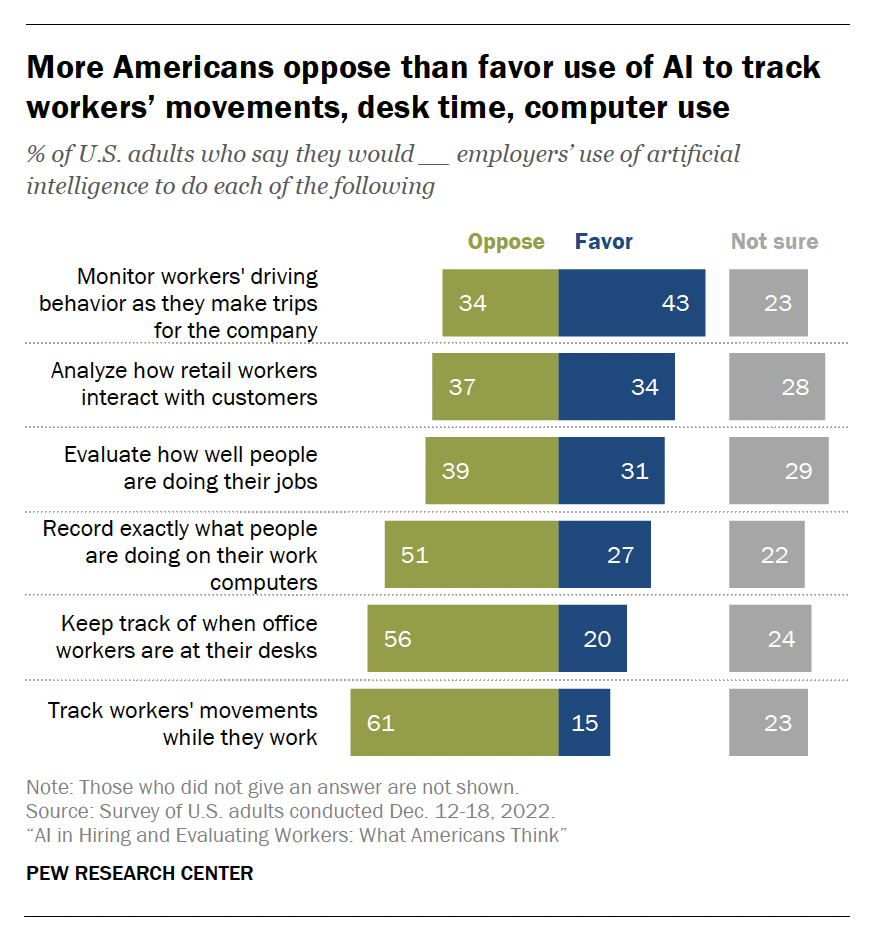
Facial Recognition Technology: Diving into the Numbers
Most Americans oppose the use of facial recognition technology to analyze employees’ facial expressions (70%) but are more receptive to its use for tracking attendance (45% in favor). Further analysis of the data shows:
- 70% of respondents believe that face recognition technology would misinterpret expressions
- ~50% think it would misidentify workers or recognize some skin tones better than others
- Men under 50 are more likely to oppose workplace uses of face recognition technology compared to women and older adults
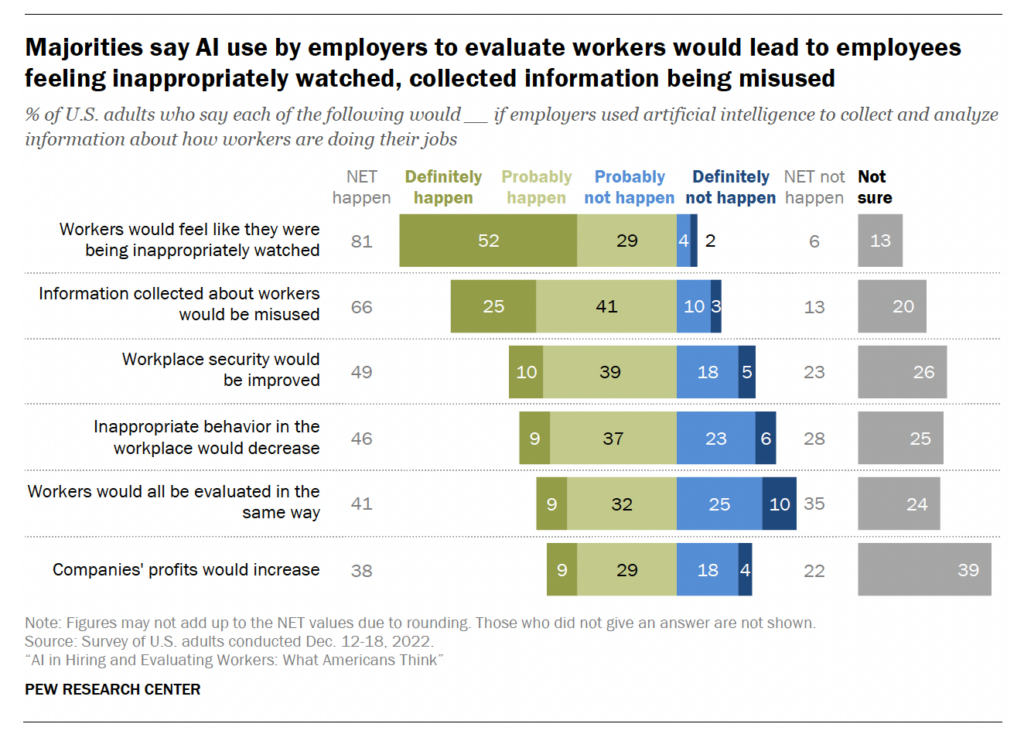
Demographic Factors Influencing AI Perceptions
The Pew Research Center survey data also reveals that demographic factors, such as age, education, race, and awareness of AI in the workplace, influence views on AI’s role in hiring and monitoring:
- Adults under 50 are more likely to see AI as an improvement in treating job applicants consistently but also believe it would be worse at recognizing potential in candidates or assessing how they would fit with co-workers.
- Asian adults are more likely to oppose various types of AI monitoring in the workplace and more likely to see potential benefits, such as improved security and fewer inappropriate behaviors.
- Black and Asian adults are more likely to believe that face recognition technology would recognize some skin tones better than others.
- Awareness of AI’s use in work-related activities is often linked to people’s opinions, with those more aware being more open to AI use in hiring processes and worker-monitoring systems.
The adoption of AI in the workplace has raised a myriad of questions and concerns, as evidenced by the mixed opinions found in the Pew Research Center survey. While some view AI as a valuable tool for increasing efficiency and productivity, others express concerns about its impact on job displacement and privacy. However, as technology continues to evolve, it is crucial to remain vigilant and informed about the potential opportunities and challenges that AI presents. By engaging in open and transparent discussions and leveraging data-driven insights, we can work towards creating a future where AI serves as a powerful tool for innovation and progress, while also prioritizing the well-being of individuals and society as a whole.




